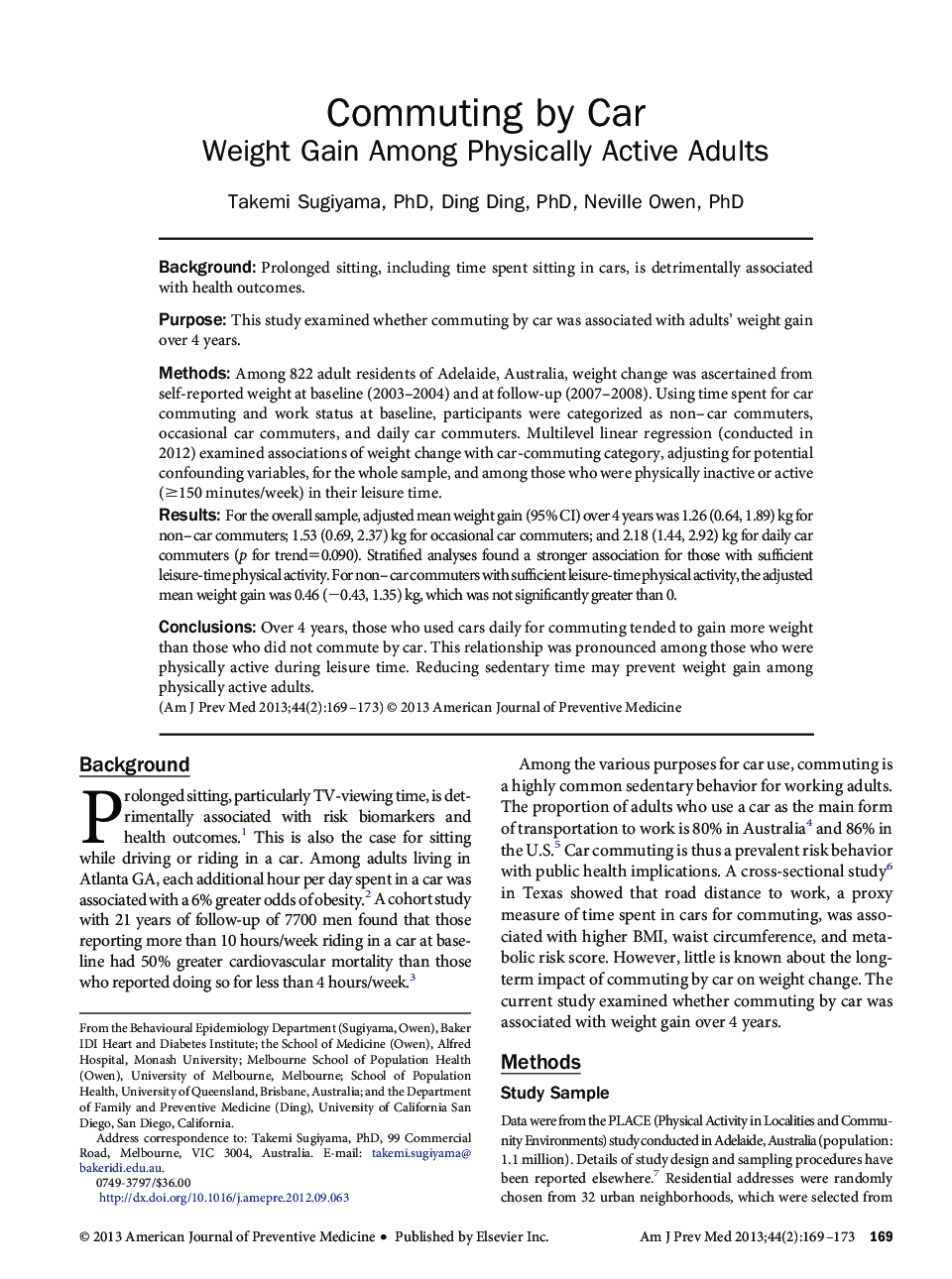| Article ID | Journal | Published Year | Pages | File Type |
|---|---|---|---|---|
| 6238227 | American Journal of Preventive Medicine | 2013 | 5 Pages |
BackgroundProlonged sitting, including time spent sitting in cars, is detrimentally associated with health outcomes.PurposeThis study examined whether commuting by car was associated with adults' weight gain over 4 years.MethodsAmong 822 adult residents of Adelaide, Australia, weight change was ascertained from self-reported weight at baseline (2003-2004) and at follow-up (2007-2008). Using time spent for car commuting and work status at baseline, participants were categorized as non-car commuters, occasional car commuters, and daily car commuters. Multilevel linear regression (conducted in 2012) examined associations of weight change with car-commuting category, adjusting for potential confounding variables, for the whole sample, and among those who were physically inactive or active (â¥150 minutes/week) in their leisure time.ResultsFor the overall sample, adjusted mean weight gain (95% CI) over 4 years was 1.26 (0.64, 1.89) kg for non-car commuters; 1.53 (0.69, 2.37) kg for occasional car commuters; and 2.18 (1.44, 2.92) kg for daily car commuters (p for trend=0.090). Stratified analyses found a stronger association for those with sufficient leisure-time physical activity. For non-car commuters with sufficient leisure-time physical activity, the adjusted mean weight gain was 0.46 (â0.43, 1.35) kg, which was not significantly greater than 0.ConclusionsOver 4 years, those who used cars daily for commuting tended to gain more weight than those who did not commute by car. This relationship was pronounced among those who were physically active during leisure time. Reducing sedentary time may prevent weight gain among physically active adults.
